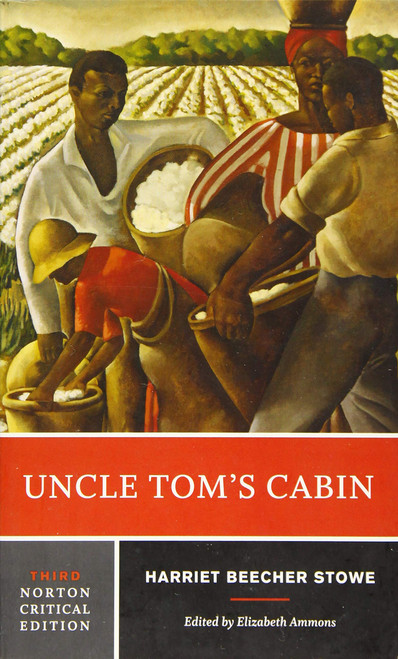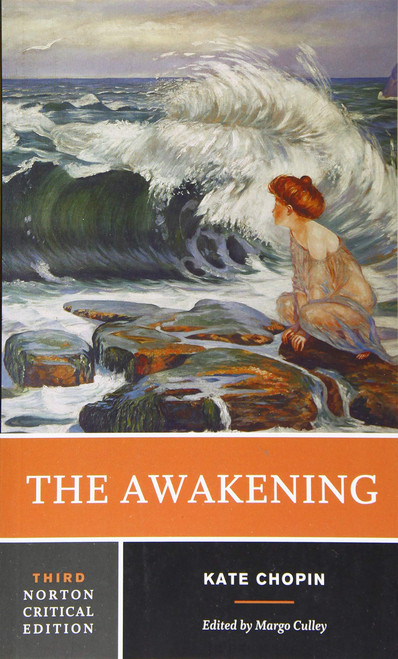In the nineteenth century Uncle Tom's Cabin sold more copies than any other book in the world except the Bible.
It was quickly translated into thirty-seven languages and has never gone out of print. The book had a far-reaching impact and deeply affected the national conscience of antebellum America. The Norton Critical Edition text is that of the 1852 book edition, published in two volumes by John P. Jewett and Company, Boston; original illustrations are included. Annotations are provided to assist the reader with obscure historical terms and biblical allusions. Backgrounds and Contexts includes a wealth of historical material relevant to slavery and abolitionism. Among the documents presented are Josiah Henson's 1849 slave narrative (named by Stowe as one of the sources for the novel); Solomon Northup's eyewitness account of an 1841 slave auction; Harriet Jacobs's narrative of her life as a fifteen-year-old slave; two epistolary accounts by ex-slave and abolitionist William Wells Brown, which document events in Uncle Tom's Cabin; two crucial excerpts from Stowe's Key to Uncle Tom's Cabin which provide the real-life basis for characters and events in the novel; and accounts of Tom-Shows and the anti-Uncle Tom literature that sprang up in response to the novel's publication. Illustrative material includes slave advertisements, runaway slave posters, and illustrations for the first British edition of Uncle Tom's Cabin by Britain's premier illustrator, George Cruikshank, as well as popular illustrations from American editions of the novel. Criticism is arranged under two headings. Nineteenth-Century Reviews and Reception includes critiques by George Sand, William G. Allen and Ethiop (both from Frederick Douglass' Paper), George F. Holmes, and Paul Laurence Dunbar, among others. Twentieth-Century Criticism collects five of the best critical assessments of the novel's continuing impact on American society. With the exception of James Baldwin's groundbreaking essay, Everybody's Protest Novel, the critical essays date from the years 1985 to 1992. Jane P. Tompkins investigates why the text was excluded from the canon for most of the twentieth century. Robert S. Levine provides an overview of the text's popular reception and influence since publication, including current critical schools and critics. Hortense J. Spillers takes a textual/linguistic view in her comparison between Stowe and Ishmael Reed as impression points in the literary imagination of slavery. And Christina Zwarg traces the influence Stowe's feminism had on her treatment of fatherhood and its effect on the home. A Chronology of Stowe's life and work and a Selected Bibliography are also included.Uncle Tom's Cabin (Norton Critical Editions)
MSRP:
Was:
Now:
$29.29 - $39.69
(You save
)
- SKU:
- UPC:
- 9780393963038
- Maximum Purchase:
- 3 units
- Binding:
- Paperback
- Publication Date:
- 1993-11-17
- Author:
- Harriet Beecher Stowe
- Language:
- english
- Edition:
- 1st

W. W. Norton & Company
Uncle Tom's Cabin: A Norton Critical Edition (Norton Critical Editions)
MSRP:
Was:
Now:
$16.66 - $35.49

Uncle Tom's Cabin (Second Edition) (Norton Critical Editions)
MSRP:
Was:
Now:
$18.07 - $34.68

Uncle Tom's Cabin
MSRP:
Was:
Now:
$12.06 - $18.04

Tom Jones (Norton Critical Editions)
MSRP:
Was:
Now:
$16.07 - $65.39

Brand: W. W. Norton Company
The Adventures of Tom Sawyer (Norton Critical Editions)
MSRP:
Was:
Now:
$14.86 - $44.52

Uncle Tom's Cabin (Bantam Classics)
MSRP:
Was:
Now:
$9.97 - $12.95

Antigone: A Norton Critical Edition (Norton Critical Editions)
MSRP:
Was:
Now:
$22.12 - $30.94

W. W. Norton & Company
Othello: A Norton Critical Edition (Norton Critical Editions)
MSRP:
Was:
Now:
$12.84 - $35.50

W. W. Norton & Company
The Awakening: A Norton Critical Edition (Norton Critical Editions)
MSRP:
Was:
Now:
$13.56 - $38.15
!

